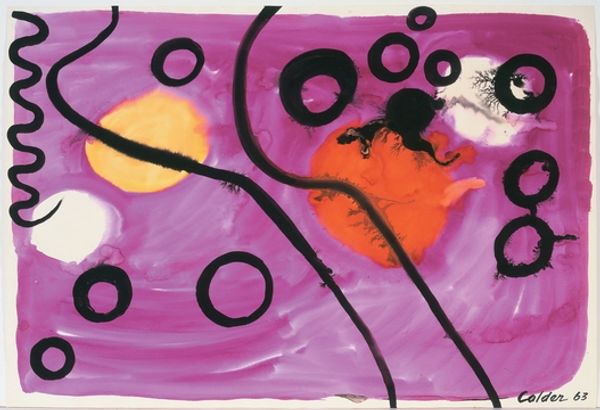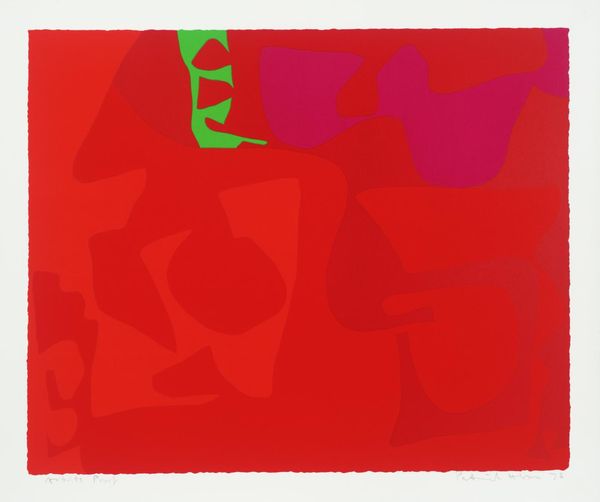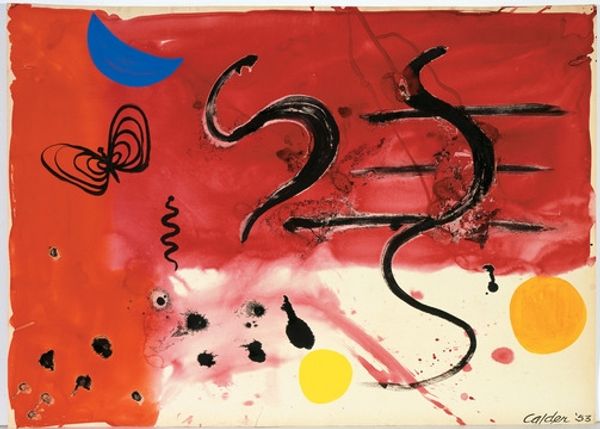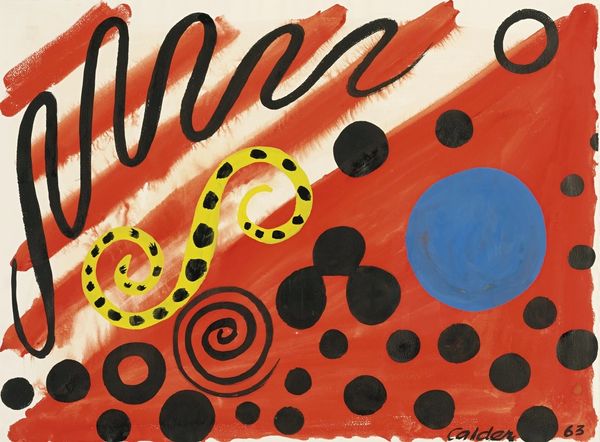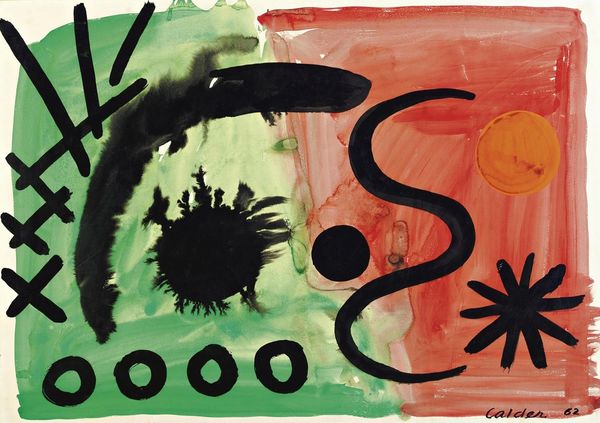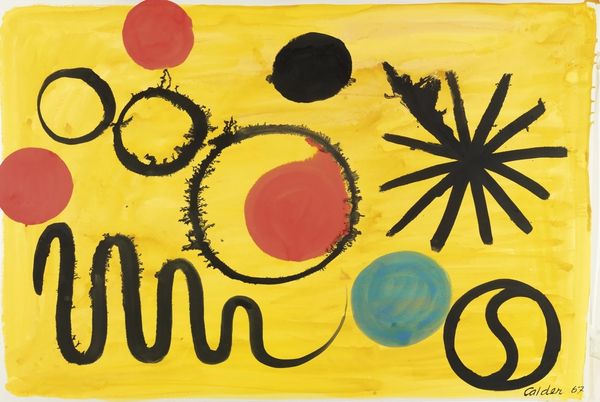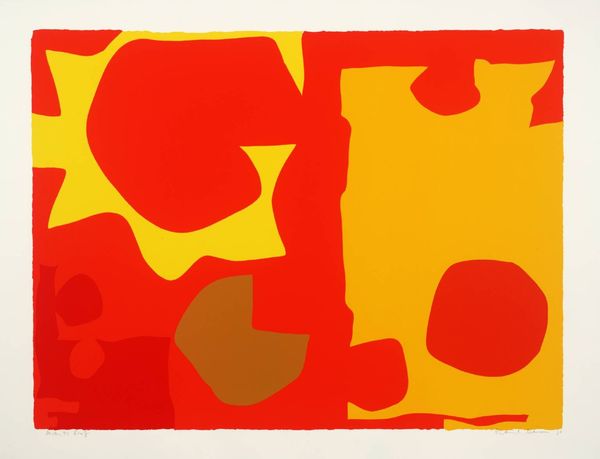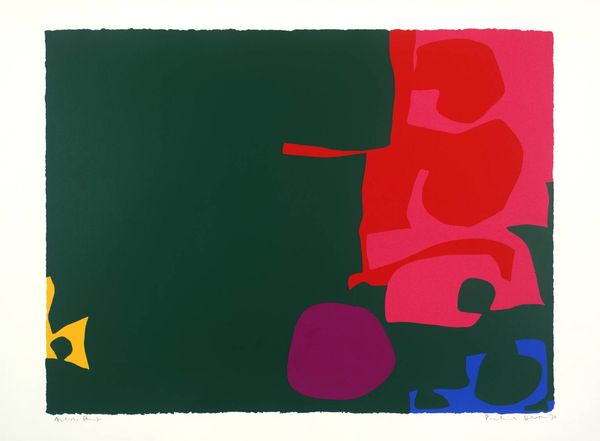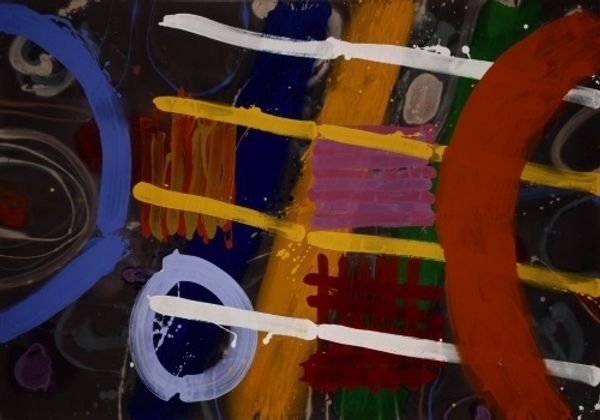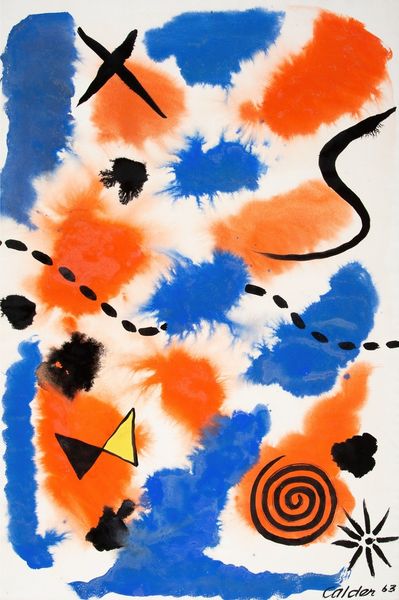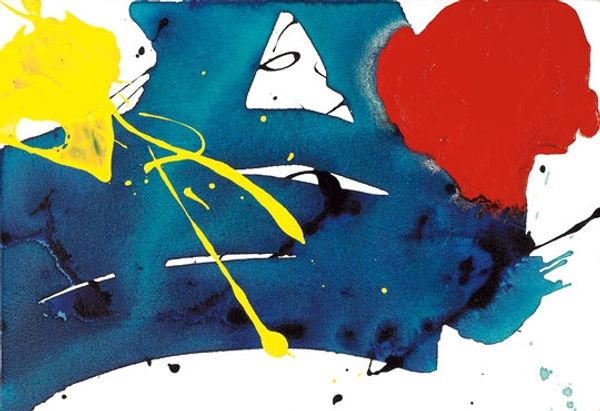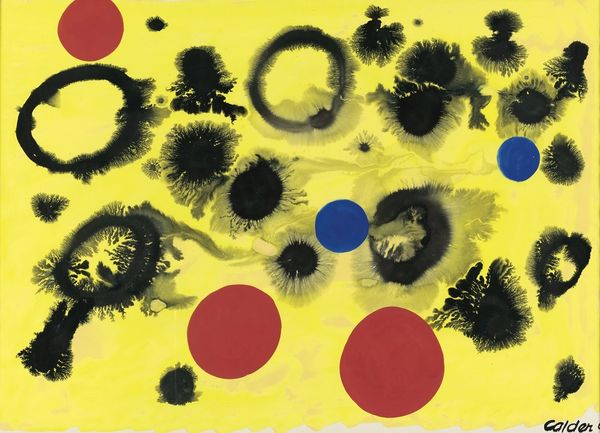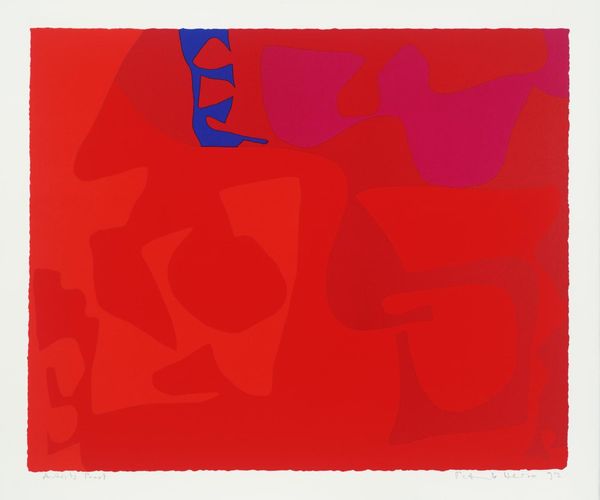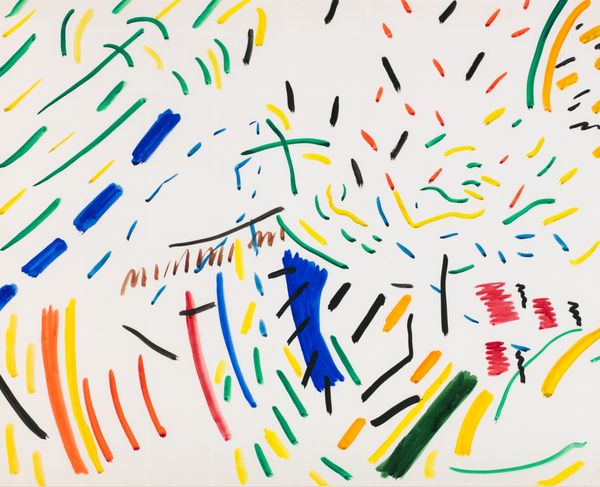
Copyright: Modern Artists: Artvee
Alexander Calder created "Blue and Purple Discs" in 1964 using ink and watercolor on paper. The composition immediately strikes you with its vibrant, almost playful energy. We see a dynamic interplay between organic and geometric shapes, set against a backdrop of fiery reds and sunny yellows. Calder, known for his mobiles, brings a similar sense of movement to this static work. Notice how the black circles, or "discs," are distributed—some fully formed, others dissolving into the background. These shapes create a visual rhythm, guiding the eye across the paper. This interplay of color and form destabilizes conventional notions of space, flattening the picture plane while still implying depth. The discs themselves, particularly the titular blue and purple ones, act as focal points, anchoring the composition. In breaking down the traditional figure-ground relationship, Calder prompts us to question our expectations of representation. What is the ground, and what is the figure? It's in this ambiguity that "Blue and Purple Discs" finds its lasting power.
Comments
No comments
Be the first to comment and join the conversation on the ultimate creative platform.
